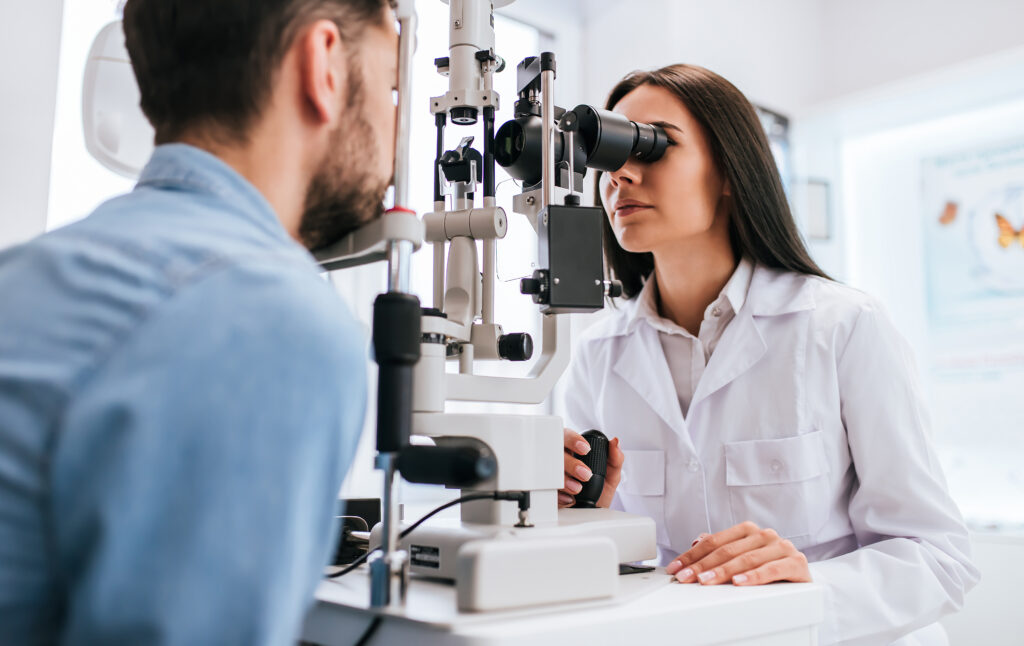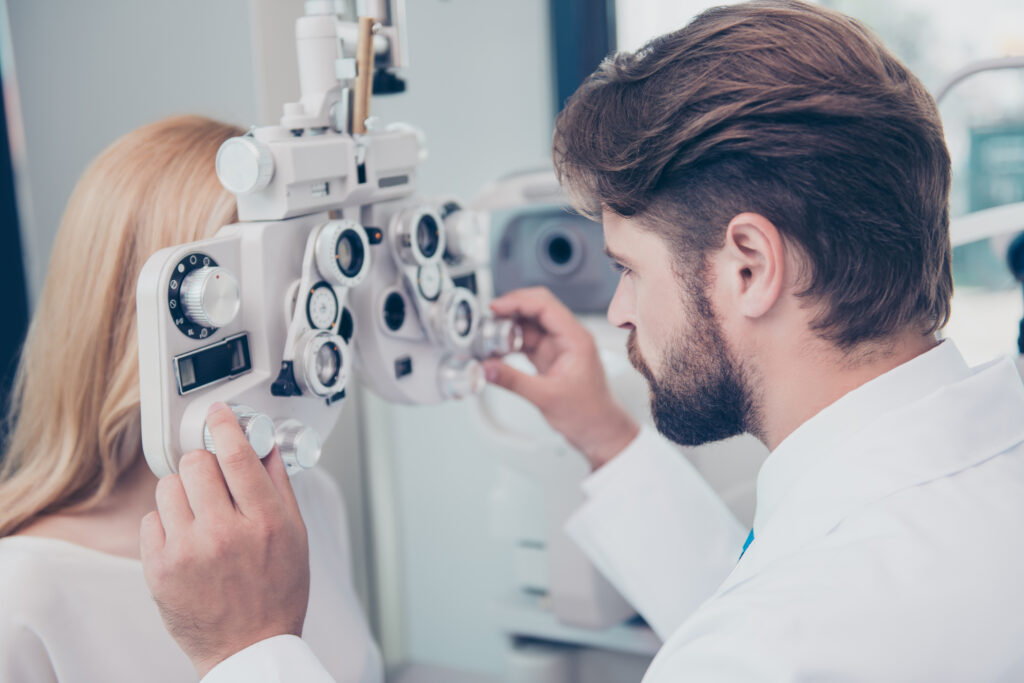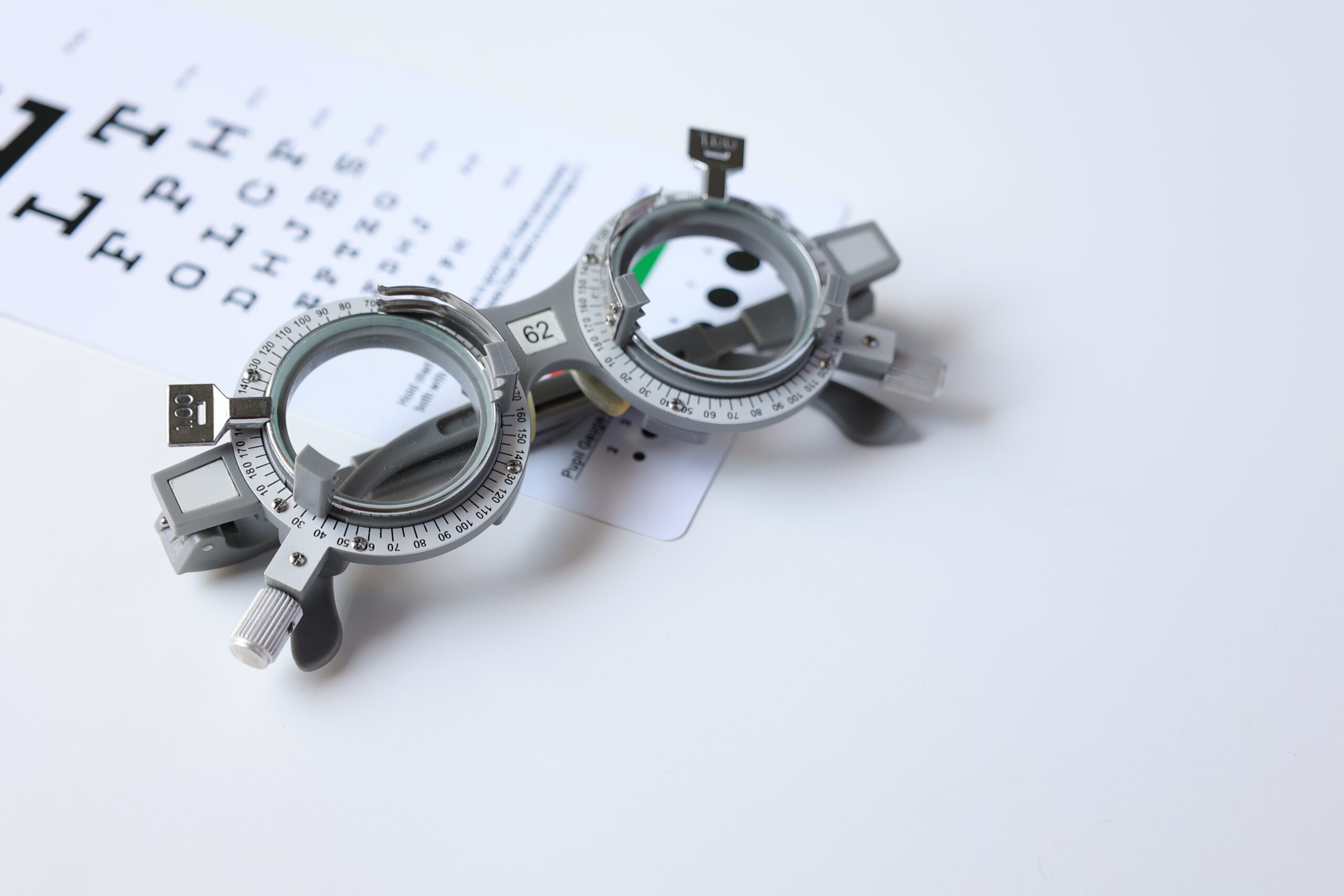Table of Contents
Good eyesight is essential for any driver when driving a vehicle. But sadly, according to Optical Express, road accidents involving a driver with poor vision account for approximately 2,900 casualties annually.
Given these stats, it’s no surprise that haulage companies and HGV trainers require drivers to be visually sound. This is where the HGV eye test comes in, which is used to assess an individual’s vision quality. But what exactly is it and what are the requirements for passing?
Keep reading to find out!
What is the eyesight test for driving?
Eyesight tests for driving are vital medical examinations that help to save lives on the road. These assessments are designed to test how good a person’s vision is and whether they meet the minimum eyesight standards set out by the DVSA for driving.
Anyone instructed by the DVSA or is training to drive vocationally is required to take an eyesight exam. The vision requirements for heavy goods vehicles or bus drivers differ from standard drivers, but we’ll explore this more in the next section.
If you fail the HGV eye test and don’t address the issue with your vision, you won’t be able to embark on HGV training, complete your driving test, and gain your driving licence – so it really is worth sorting if you can!

What’s involved in the HGV eye test?
If you’re interested in becoming an HGV, LGV, or bus driver, you’ll have to complete a vision assessment as part of your HGV medical – a series of medical tests conducted by a doctor to ensure you’re fit to drive. But what does the HGV eye test entail?
1. The visual acuity test
The first part of your HGV eye test should only take a few minutes and will assess your visual acuity (VA) – the ability of the eye to perceive shapes and objects at a distance clearly and small details with precision.
Good visual acuity is essential whilst driving an HGV as it’ll allow you to read road signs and road markings while also spotting hazards, such as a parked vehicle, changes in road surfaces, and potholes.
Standards of vision for all driving are typically measured on the Snellen scale – individuals must read aloud from a chart featuring a series of capital letters that decrease in size.
Note – If you wear glasses or contact lenses, you should wear them during the HGV eyesight tests.
2. The visual field test
The second part of the driving eye exam evaluates your field of vision and peripheral vision – the movement, shapes, and objects you can see beyond your central vision.
Visual fields are vital as they allow you to stay aware of potential hazards to the side of you, whilst you focus on the road ahead. Such hazards could include overtaking vehicles or cyclists emerging from side roads suddenly.
This section of the DVLA eye test should only take 5 minutes and is performed binocularly, using both eyes together and across a wider area. You’ll be instructed to look into a screen where spots appear intermittently and you’ll have to press a button when you see them.
In addition to your HGV eyesight test, you’ll also have to read a number plate from 20 metres away before your actual practical driving test.

What are the HGV eye test requirements?
As mentioned earlier, lorry and bus drivers must meet higher eyesight requirements than the normal standard for driving.
To illustrate the stricter HGV eye test requirements, here are the vision standards for car drivers outlined at GOV.UK:
- You must have a visual acuity of at least Snellen decimal 0.5 (6/12) in both eyes or, if you have sight in one eye only, in that eye.
- You also need an adequate field of vision at least 120° with an extension of at least 50° left and right.
Lorry and bus drivers, on the other hand, must meet the following minimum standards:
- Have a visual acuity of at least:
- Snellen 6/7.5 (Snellen decimal 0.8) in their better eye
- Snellen 6/60 (Snellen decimal 0.1) in their poorer eye
- You must also have an uninterrupted horizontal visual field of at least 160 degrees with an extension of at least 70 degrees left and right and 30 degrees up and down.
- If you wear glasses, the corrective power should be no more than (+) 8 dioptres – however, there’s no limit to the corrective power of contact lenses.
But don’t worry if this all sounds very complex – your medical professional will explain it in more detail during your examination.

How do I find out when I passed my HGV test?
After your HGV vision test, your doctor, optician, or optometrist will fill in the vision assessment of your D4 form. This form outlines the conclusions of your HGV medical exams and is sent to the DVLA.
Suppose you have a medical condition that could be affecting your vision, such as glaucoma or diabetic retinopathy. In that case, this will be stated in your report – but don’t panic, as it may not necessarily mean you won’t be able to start HGV training.
As for your results, the DVLA will inform you of any decision about your provisional HGV driving license in writing.
Is there an HGV eye test online?
You can’t take the HGV eyesight test online as it must be conducted and recorded by a qualified medical professional who is GMC-registered and licensed to practice in the United Kingdom or within the EU.essional HGV training centres across the UK, so wherever you’re based, you can earn your HGV licence!

How often should an HGV driver have an eye test?
When you become a qualified HGV driver, you’re required to have an eye test every five years, although some logistics and haulage companies insist on annual tests for their HGV drivers.
This is because our vision degenerates over time, so it’s imperative that it’s monitored to prevent potential accidents as a result of poor eyesight.
If you aren’t sure, it’s worth double checking with your employer when your training ends.
Speak with our team for HGV training
Thinking of a lucrative career switch with more perks than you can imagine? If so, HGV driving could be the answer for you!
Here at the HGV Training Network, we specialise in providing elite HGV and CPC training and much more!
Want to train but aren’t sure if your finances will stretch? No problem – with HGV training finance, you can fund your new venture in small chunks over a period of time.
For more advice, get in touch with our helpful team today on 0800 254 5007.touch with our dedicated team today on 0800 254 5007 and we’ll guide you through the process.








